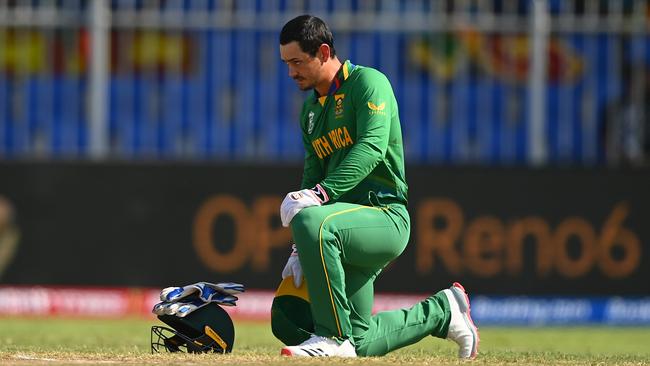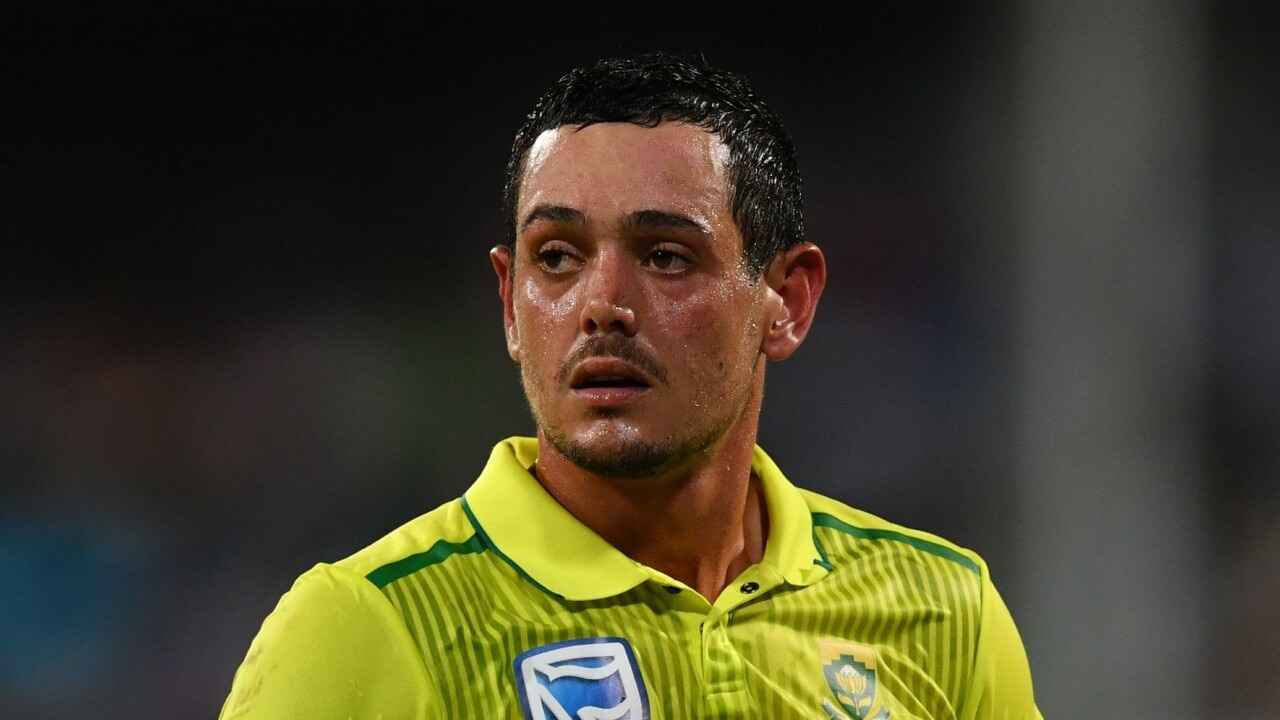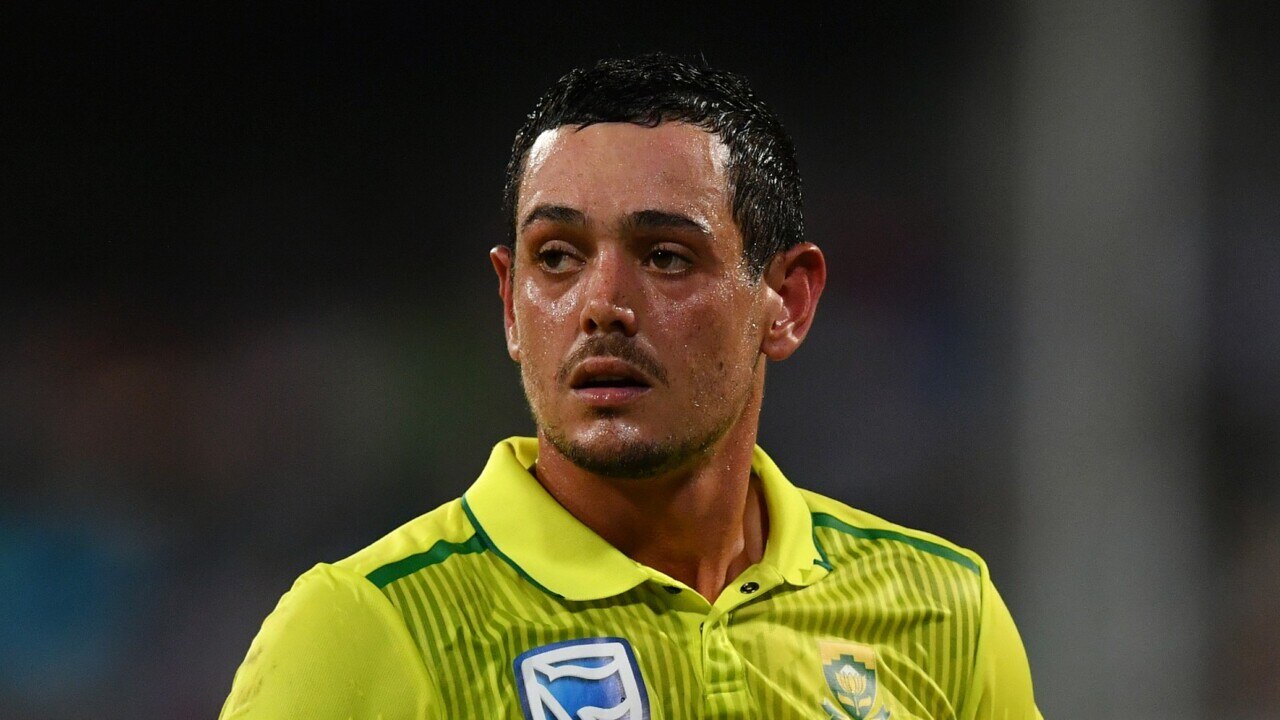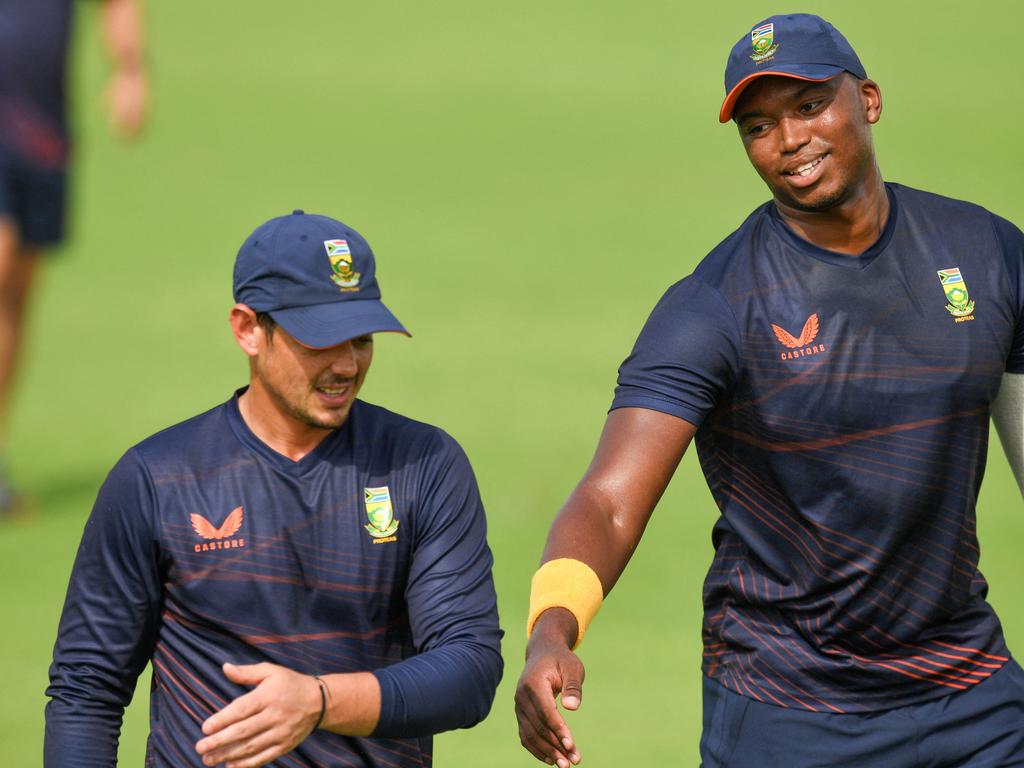
The kerfuffle over the international cricketer’s quiet refusal, then public turnaround, to follow the mandatory instruction from his country’s sporting body that players take the knee at cricket matches has moved us closer to realising that this gesture has had its day.
De Kock’s decision not to take the knee at a T20 World Cup match, choosing instead to step aside from a game, raised important questions about the significance of this gesture.
The cricketer made no statement to accompany his refusal, believing he was entitled to his private opinions. Some used his silence as reason enough to rush to an awful judgment: he must be racist if he is unwilling to show solidarity with the Black Lives Matter movement.
This reaction shows precisely how taking the knee has been derailed from serious thinking about racism.
That’s the problem with taking the knee. Its meaning is confused. And just because I don’t publicly declare that I am against racism does not mean that I am a racist. That is as mindless as a mother shouting to the world that she doesn’t beat her kids, and that beating kids is bad.
Public flagellation has nothing to do with private virtue. By making it compulsory for players, Cricket South Africa removed any last vestiges of meaning from dropping to a knee before a ball is bowled.
De Kock has since apologised for the hurt that his decision caused.
In a three-page letter, he revealed that: “My half-sisters are Coloured and my stepmom is Black … for me, Black lives have mattered since I was born. Not just because there was an international movement.”
American philosopher Eric Hoffer once remarked that “America has not been a good milieu for the rise of a mass movement; what starts out here as a mass movement ends up as a racket, a cult or a corporation”.

What started as an individual protest by Colin Kaepernick has managed to become all three: a racket, a cult and a corporatist tool. When the American footballer decided to kneel during the national anthem before a match in 2016, he explained that he would not stand as a mark of respect for a country that continues to oppress black people.
Kaepernick’s protest attracted attention from the then US president Donald Trump down.
As psychologists tell us, our brains are trained to spot deviations from routine. Now, taking the knee is the routine, and De Kock’s actions the deviation that has attracted attention.
Even before he wrote his moving letter about his mixed-race background in a country where apartheid was once official policy, De Kock’s quiet defiance made it clear that taking the knee had become a pro forma act of compliance, a mandated branding exercise in the case of the South African cricket body.
It is an easy and cost-free exercise for many sporting stars who do little in their privileged private lives to combat racism.
They would do better with a $2 plastic wristband; that at least raises some money for a good cause.
Taking the knee has the value of a brass razoo.
Some players who take the knee have said they are not buying into the BLM movement, merely making the point that racism will not be tolerated. The problem is that this gesture has been appropriated by the BLM movement, with protesters routinely dropping to their knees during their marches.
Given that reality, what is a cricketer or a footballer to do if they have reservations about some BLM objectives, like defunding the police? Should they take half a knee to signal that they have not bought into the BLM movement holus-bolus?
All of this reinforces that it is the doing that counts for more than a moment-in-time gesture.
In July this year, former Liverpool soccer star John Barnes asked the only pertinent question on this subject: “What practical action has been taken in the last year” since English footballers started taking the knee before kick-off?
Barnes, who played for England, Liverpool and Watford, was pelted with banana skins and racially abused in other ways many times during his career. He said that taking the knee isn’t going to change anything.
Various sporting bodies have said something similar to what the Union of European Football Associations said in July: “Any player who wants to demand equality among human beings by taking the knee will be allowed to do so.” Then they urge spectators to show respect for players taking the knee.
Perhaps some of the boos come from people who have a better grip on what is real and what isn’t. It’s not so much that politics has entered sport, more a case that kneeling is a cost-free spectacle that does nothing to deal with inequality.
It has no meaning unless attached to outcomes.
Others higher up the football hierarchy feel the same way. As David Mercer from Sky News UK reported earlier this month, outside of England’s top division, more than a third of football league clubs have stopped taking the knee since the gesture started in March 2020.
The Premier League’s Chelsea player Marcos Alonso said he thinks the gesture is “losing a bit of its strength”. Brentford striker Ivan Toney said players were being “used as puppets”.
On the weekend, Crystal Palace forward Wilfried Zaha – who comes from the Ivory Coast – slammed the racist messages he had received online after his team’s 2-0 win against Manchester City.
He is also the first Premier League player to stop taking a knee, describing it as “degrading”.
“We should be encouraging better education in schools. Social media companies should be taking strong action against people who abuse others online,” he said in his weekend statement.

Tony Burnett, the boss of Kick it Out, English football’s anti-racism association, told Sky News a few weeks ago that he had spent a lot of time during the past six months talking about taking the knee. He would rather be talking about where racism comes from and how to tackle it.
Taking the knee isn’t the same as lifting a finger to combat racism. De Kock may have caved to pressure, but his initial defiance and letter will one day be seen as part of a new and different movement – one that recognises that empty gestures are favoured mostly by unthinking and lazy followers and marketing people who are in the business of building a brand, not combatting racism.







Quinton de Kock and Cricket South Africa have done a great thing this past week, and not just for cricket.